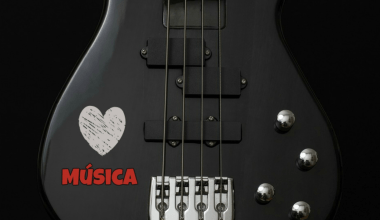Have you ever listened to a song and felt something so powerful you wanted to share it with others? A songwriting review is all about expressing what you think and feel about a song. It’s a way to break down the words (lyrics), music (melody), and story of a song so others can see why it’s special.
If you love music or want to help artists improve their craft, learning how to write songwriting reviews can be very rewarding. Don’t worry if you’re just starting – this guide will make everything simple and fun.
Why Are Songwriting Reviews Important?
Imagine writing a song and having someone point out the parts they loved and where you could improve. That’s what good songwriting reviews do for artists. They’re also helpful for listeners who want to know more about the meaning of a song.
Here’s why songwriting reviews matter:
- For Artists: They can see how their music is being received.
- For Listeners: Reviews give insight into what makes a song meaningful or unique.
- For You (the reviewer): Writing reviews helps you think deeply about music and improve your understanding of it.
How to Start Writing Songwriting Reviews
Starting is the hardest part, but it doesn’t have to be. Follow these steps to create a thoughtful and easy-to-read review:
1. Listen to the Song Many Times
The first listen is for the overall feel of the song. The second time, focus on the words (lyrics). The third time, pay attention to the music and instruments.
2. Understand the Artist’s Intentions
Research the artist. What do they usually sing about? Did they mention what inspired this song? Knowing the background can help you connect more with their work.
3. Take Notes While Listening
Write down:
- Lines of lyrics that stand out.
- How the music makes you feel.
- Anything unusual or interesting in the song.
Breaking Down a Song: What to Focus On
Here’s how you can look at the different parts of a song:
1. Lyrics
Lyrics are like the heart of a song. They tell the story or express emotions. Ask yourself:
- What is the song about? Is it about love, heartbreak, or something else?
- How are the words written? Are they simple and direct, or full of metaphors and imagery?
- Do the lyrics make you feel something?
For example: In Taylor Swift’s song “Love Story,” the lyrics use a Romeo-and-Juliet theme to tell a modern love story. This clever twist makes the song relatable yet unique.
2. Melody
The melody is the tune you hum even after the song is over. Good melodies are catchy and match the mood of the lyrics.
- Is the melody fast and energetic, or slow and emotional?
- Does it feel fresh, or does it remind you of something else?
3. Instruments and Harmony
Listen for:
- Instruments: Does the piano, guitar, or drums stand out?
- Harmony: How do different sounds come together to support the melody?
4. Song Structure
Most songs have verses, choruses, and sometimes a bridge. Look at how the parts are arranged:
- Does the song flow smoothly?
- Are the hooks (repeated lines) strong enough to grab attention?
Example Review: Billie Eilish’s “Ocean Eyes”
Lyrics: The words are dreamy and poetic, describing deep emotions. Phrases like “burning cities” and “napalm skies” stand out because they’re so vivid.
Melody: The melody is soft and haunting, which matches the emotional lyrics perfectly.
Overall: This song feels like a whisper straight to the heart. Billie’s voice and the simple production make it unforgettable.
Tips for Writing Amazing Songwriting Reviews
If you want your reviews to stand out, try these tips:
1. Be Honest but Kind
Artists pour their hearts into their music. Even if you don’t like something, be respectful in how you say it. For example:
- Instead of: “The lyrics are boring.”
- Say: “The lyrics could use more imagery to make them stand out.”
2. Use Simple Words
You don’t need to use big or fancy words. Write like you’re talking to a friend.
3. Explain Why
Don’t just say, “I love this song.” Explain why. Did the lyrics make you cry? Did the beat make you want to dance?
4. Focus on the Artist’s Intent
Sometimes a song isn’t meant to be a chart-topper. Maybe it’s a personal story or an experiment. Consider what the artist was trying to achieve.
Common Mistakes in Songwriting Reviews
Here are a few things to avoid:
- Being Too Harsh: Negative reviews can be helpful, but only if they’re fair.
- Ignoring Context: Understand the genre or style before judging.
- Writing Too Much or Too Little: A review should be long enough to cover key points but not drag on.
How to Practice Writing Reviews
- Start with your favorite songs. It’s easier to review music you already love.
- Compare your review with others online. See how your opinions match up.
- Ask friends for feedback. Share your reviews and see if they agree.
Tools to Help You Review Songs
- Lyric Websites: Sites like Genius.com can help you understand tricky lyrics.
- Music Apps: Spotify and YouTube often have background information about songs.
- Music Theory Basics: Learn a little about chords and scales to describe melodies better.
The Future of Songwriting Reviews
With social media and new technology, songwriting reviews are evolving. Here are some trends:
- Video Reviews: Platforms like TikTok are making reviews more visual and interactive.
- AI Analysis: AI tools can analyze lyrics and melodies, giving new insights.
- Global Focus: More reviewers are exploring music from different cultures and languages.
A Simple Framework for Writing Reviews
Follow this structure to keep your review organized:
- Introduction: What song are you reviewing, and why?
- Lyrics: Discuss the story and message.
- Music: Talk about the melody and instruments.
- Overall Feel: Share your emotional reaction.
- Conclusion: Summarize your thoughts.
Conclusion: Why Songwriting Reviews Matter
Writing songwriting reviews is a way to celebrate music and share your love for it with others. Whether you’re praising a hit song or giving constructive feedback to an indie artist, your words can make a difference.
Remember, there’s no right or wrong way to feel about a song. Your unique perspective is what makes your review special.
So grab your headphones, listen closely, and start writing. Who knows? Your next review might inspire someone to discover their new favorite song!
Related Articles:
For further reading, explore these related articles:
For additional resources on music marketing and distribution, visit DMT RECORDS PRIVATE LIMITED.






